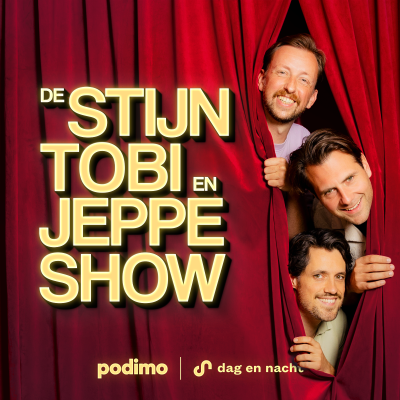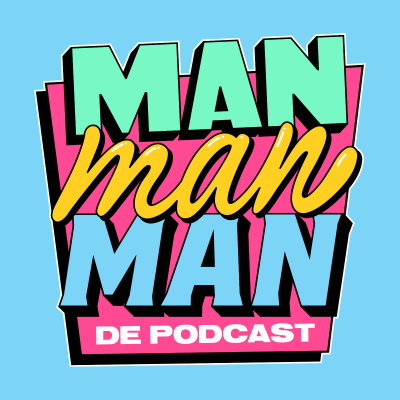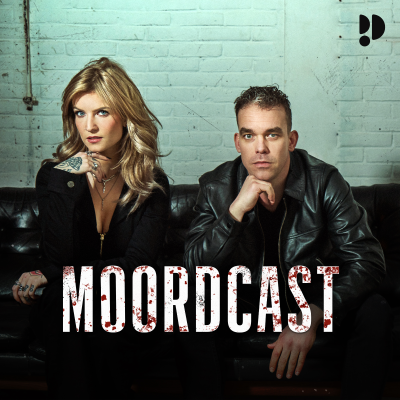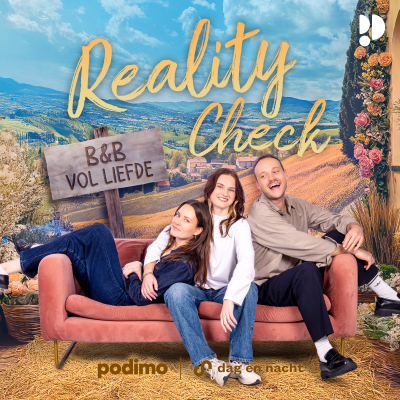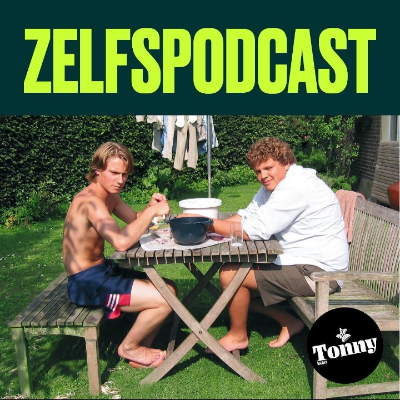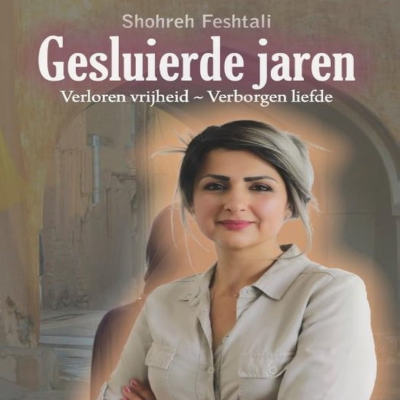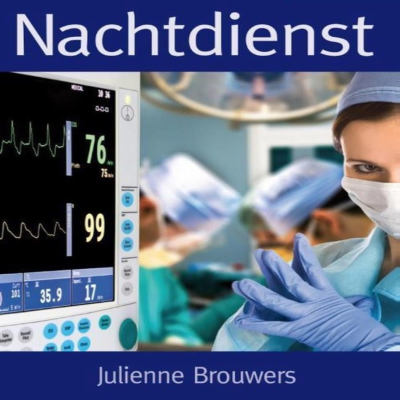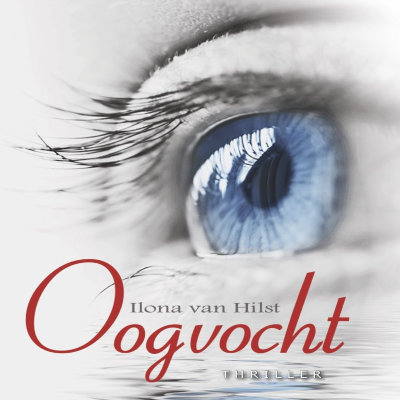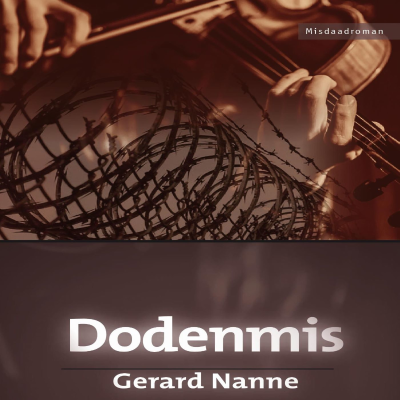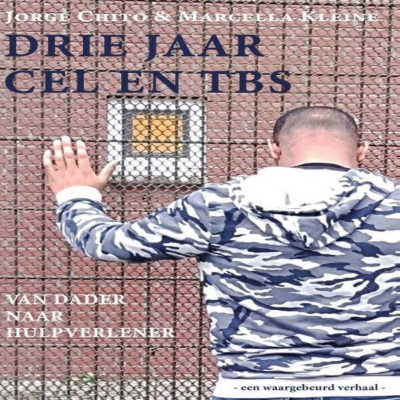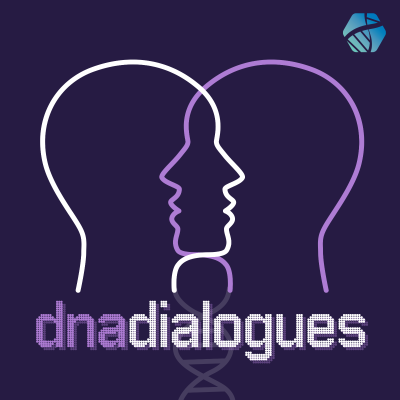
DNA Dialogues: Conversations in Genetic Counseling Research
Podcast door Journal of Genetic Counseling (Jehannine Austin, Naomi Wagner, Khalida Liaquat, Kate Wilson and DNA Today’s Kira Dineen)
Tijdelijke aanbieding
2 maanden voor € 1
Daarna € 9,99 / maandElk moment opzegbaar.
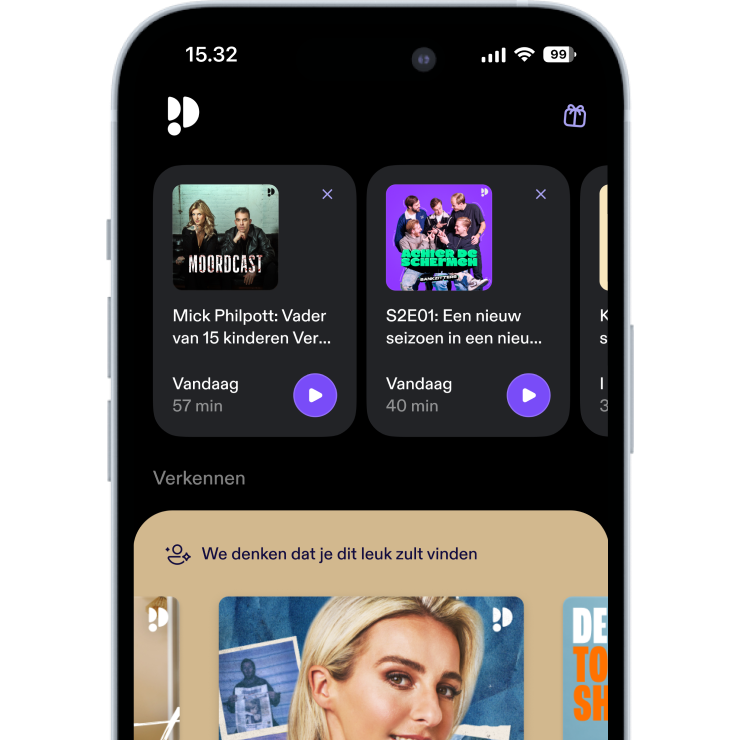
Meer dan 1 miljoen luisteraars
Je zult van Podimo houden en je bent niet de enige
4.7 sterren in de App Store
Over DNA Dialogues: Conversations in Genetic Counseling Research
In DNA Dialogues we dive into the intricate world of genetic counseling research. Join us as we peel back the layers of groundbreaking articles from the Journal of Genetic Counseling, bringing you exclusive discussions with the authors themselves. Each episode sparks a vibrant exchange, exploring the latest discoveries, ethical dilemmas, and technological advances that are shaping the future of medical genetics. From navigating complex testing decisions to building trust with diverse communities, listen in as we unpack the science, challenge assumptions, and celebrate the human connection at the heart of genetic counseling research. So, grab your headphones, unravel the double helix, and prepare to be captivated by the array of voices in DNA Dialogues, a podcast where the blueprint of life meets intimate human conversation.
Alle afleveringen
22 afleveringenIn this episode, we talk with two authors who have papers featured in the special issue of the Journal of Genetic Counseling on Research Methods in Genetic Counseling. In the first segment we explore implementation science and its utilization in bridging the gap between research and clinical practice. In our second segment, we talk to an author about retrospective chart reviews and the benefits and drawbacks of this methodology. Segment 1: A guide to utilizing implementation science for genetic counseling [https://onlinelibrary.wiley.com/doi/10.1002/jgc4.70039] Alanna Kulchak Rahm is a certified genetic counselor and implementation scientist with a PhD in Health and Behavioral Science. She has spent her career specializing in the implementation of genomics and precision health in healthcare systems. For over 25 years, she has conducted research on the utilization of genetic information by individuals and healthcare systems, new paradigms for identifying individuals with genomic risk, and new service delivery models for genomic testing. She has been a driver for the integration of implementation science and patient engagement to understand and study the integration of genomics into the learning health system, and is a tireless advocate of implementation science in genetic counseling. She has participated in and led many workshops and trainings on implementation science in genetics, serving as a faculty mentor for the NIH Training in Dissemination and Implementation Research in Cancer (TIDIRC) and recently as a co-lead of the Training in Dissemination and Implementation Research in Genomics and Precision Public Health (TIDIR-GPPH). She is currently a Program Director in the Division of Genomic Medicine at the National Human Genome Institute (NHGRI) where she directs the Network of Genomics-Enabled Learning Health Systems and other programs and continues to advance the integration of implementation science and genomics. In this segment we discuss: * Implementation science (IS) as a bridge between research and clinical practice in genetic counseling * Misconceptions about IS, key frameworks like RE-AIM, and practical applications in daily work * Using IS to identify and reduce inequities in genomic medicine * Future integration of IS into training, research, and professional practice * Link to the 2025 annual conference on dissemination and implementation [https://academyhealth.org/events/2025-12/18th-annual-conference-science-dissemination-and-implementation-health] Segment 2: Leveraging hindsight: A retrospective chart review how-to for genetic counselors [https://onlinelibrary.wiley.com/doi/10.1002/jgc4.70043] Dr. Ramsey is the Section Chief of Individualized Therapeutics in the Division of Clinical Pharmacology, Toxicology and Therapeutic Innovation at Children’s Mercy. She is leading the implementation of a pharmacogenomics program that is fully integrated with the electronic health record, developing model-informed decision support for several medications, and Co-director of their Pediatric Clinical Pharmacology Fellowship Program. Before joining Children’s Mercy, Dr. Ramsey was an Associate Professor and co-director of the Genetic Pharmacology Service at Cincinnati Children’s Hospital. She completed her postdoctoral fellowship in Pharmacogenetics at St. Jude Children’s Research Hospital and received her PhD in Molecular, Cellular, Developmental Biology and Genetics from the University of Minnesota – Twin Cities. Dr. Ramsey is interested in all aspects of pharmacogenetics, from basic research to implementation in patient care. In this segment we discuss: * The role of retrospective chart reviews in genetic counseling research * Common pitfalls such as unclear aims, time demands, and data extraction challenges * Strategies for success, including SOPs, REDCap, and multidisciplinary collaboration * Lessons learned on refining criteria, ensuring data quality, and team engagement Would you like to nominate a JoGC article to be featured in the show? If so, please fill out this nomination submission form here. [https://forms.gle/hLhBKa2cRYBKkeFF9] Multiple entries are encouraged including articles where you, your colleagues, or your friends are authors. Stay tuned for the next new episode of DNA Dialogues! In the meantime, listen to all our episodes Apple Podcasts, Spotify, streaming on the website, or any other podcast player by searching, “DNA Dialogues”. For more information about this episode visit dnadialogues.podbean.com [https://dnadialogues.podbean.com/], where you can also stream all episodes of the show. Check out the Journal of Genetic Counseling here [https://onlinelibrary.wiley.com/journal/15733599] for articles featured in this episode and others. Any questions, episode ideas, guest pitches, or comments can be sent into DNADialoguesPodcast@gmail.com [DNADialoguesPodcast@gmail.com]. DNA Dialogues’ team includes Jehannine Austin, Naomi Wagner, Khalida Liaquat, Kate Wilson and DNA Today’s Kira Dineen. Our logo was designed by Ashlyn Enokian. Our current intern is Stephanie Schofield.
We are discussing perspective changes in neurology genetics with the crossover of the APOE gene in neuro and cardio as well as telehealth for neurology predictive testing. Segment 1: Is it time for a paradigm shift? Inclusion of APOE on genetic dyslipidemia panels. [https://onlinelibrary.wiley.com/doi/10.1002/jgc4.1889] Emily Brown is a certified genetic counselor at the Center for Inherited Heart Disease at Johns Hopkins Hospital. She graduated from the University of Maryland Genetic Counseling Program in 2014 and has practiced in cardiology for the past 10 years. Her main areas of interest include dyslipidemias, and she is a member of the National Lipid Association. Hannah Ison is a cardiovascular genetic counselor at the Stanford Center for Inherited Cardiovascular Disease. She received her Master’s in Medical and Molecular Genetics from Indiana University in 2018, and returned home to California to begin her career. Her primary clinical interest includes working with patients who have inherited lipid conditions in both the adult and pediatric setting. A large part of her role has been focused on developing a Pediatric Lipid Clinic at the Stanford Children’s Hospital, allowing her to care for patients across the generations. Hannah was the co-chair of the Dyslipidemia Working Group through the cardiovascular SIG from 2020-2024 where she worked with members to develop dyslipidemia resources. In addition to her work in the lipid space, she also provides inpatient and outpatient genetic counseling to patients with isolated congenital heart disease, and enjoys participating in various research opportunities. In this segment we discuss: - APOE’s relevance in both Alzheimer’s and cardiovascular disease - Counseling strategies for APOE alleles (ε2, ε3, and ε4), including penetrance, lifestyle modification, and exploration of risk for conditions and symptoms external to Alzheimer’s - Case studies highlighting APOE’s diagnostic, variant, and treatment insights - The need for standardization, education, and reframing of APOE testing in practice Segment 2: Patient-reported outcomes for remote and in-person visits for genetic counseling in adult neurology. [https://onlinelibrary.wiley.com/doi/10.1002/jgc4.70040] Rachel A. Paul, MS, CGC and Laynie Dratch, ScM, CGC are board-certified genetic counselors who specialize in adult neurogenetics and work with the Penn Neurogenetics Therapy Center team in Philadelphia, PA (https://www.linkedin.com/company/penn-neurogenetics-therapy-center [https://www.linkedin.com/company/penn-neurogenetics-therapy-center]). Rachel provides clinical and research genetic counseling services for the Division of Movement Disorders at the University of Pennsylvania. Her research interests include genetic screening for clinical trials access, remote/telemedicine genetic services, and motivations/barriers for genetics utilization. She graduated cum laude from Temple University in Philadelphia, previously worked as a genetic counseling assistant (GCA) for the Penn neurogenetics program, and completed her training with the Arcadia University (now University of Pennsylvania) Genetic Counseling Program. Laynie’s clinical focus includes frontotemporal degeneration (FTD) spectrum disorders, amyotrophic lateral sclerosis (ALS), and other neurodegenerative conditions. Her research interests include the lived experiences of at-risk individuals, predictive genetic testing considerations, and genetic counseling access and service delivery. She graduated summa cum laude from Colgate University with a BA in neuroscience and a minor in psychology, and completed her genetic counseling masters training at the Johns Hopkins University and the National Institutes of Health. In this segment we discuss: - How COVID-19 pushed neurogenetics counseling from in-person to telehealth. - Why patient satisfaction stayed high across both formats, with video outperforming phone. - What drives visit preferences—travel, tech comfort, privacy, and clinical needs. - Future research to refine protocols, improve access, and explore broader applications. Would you like to nominate a JoGC article to be featured in the show? If so, please fill out this nomination submission form here. [https://forms.gle/hLhBKa2cRYBKkeFF9] Multiple entries are encouraged including articles where you, your colleagues, or your friends are authors. Stay tuned for the next new episode of DNA Dialogues! In the meantime, listen to all our episodes Apple Podcasts, Spotify, streaming on the website, or any other podcast player by searching, “DNA Dialogues”. For more information about this episode visit dnadialogues.podbean.com [https://dnadialogues.podbean.com/], where you can also stream all episodes of the show. Check out the Journal of Genetic Counseling here [https://onlinelibrary.wiley.com/journal/15733599] for articles featured in this episode and others. Any questions, episode ideas, guest pitches, or comments can be sent into DNADialoguesPodcast@gmail.com [DNADialoguesPodcast@gmail.com]. DNA Dialogues’ team includes Jehannine Austin, Naomi Wagner, Khalida Liaquat, Kate Wilson and DNA Today’s Kira Dineen. Our logo was designed by Ashlyn Enokian. Our current intern is Stephanie Schofield.
In this episode, we talk to two genetic counselors about their recent publications in a special edition of the Journal of Genetic Counseling focused on research methods in genetic counseling. First, Benjamin Helm delves into statistical approaches and discusses how transparency and honesty in research can lead to more meaningful scientific contributions. Then Kennedy Borle explores the challenges and benefits of integrating qualitative and quantitative approaches in genetic counseling research. Segment 1: “Research methods in genetic counseling: Statistical approaches and resources [https://onlinelibrary.wiley.com/doi/10.1002/jgc4.70042]” Benjamin M. Helm, PhD, MS, CGC, is an Associate Professor of Clinical Medical & Molecular Genetics at Indiana University with specific interests in cardiovascular genetics, epidemiology, and public health genomics. He works within the Cardiovascular Genetics program at IU School of Medicine/Indiana University Health. His clinical and academic interests include genetic arrhythmias, congenital heart disease, familial hypercholesterolemia and lipoprotein (a), polygenic score methods, and assessment of population screening for genetic cardiovascular disorders. Additional work extends into public health, improving investigation of genetic risk factors for sudden death in infants and children and birth defect surveillance in Indiana. In this segment we discuss: * Importance of systematic bias and robust study design * Understanding parametric research: assumptions, sample size, and data behavior * Common misconceptions, such as the over-reliance on p-values for legitimacy and the pitfalls of p-hacking * Encouragement for genetic counselors to engage with statistical research Segment 2: “Using mixed methods for genetic counseling research [https://doi.org/10.1002/jgc4.70031]” Kennedy Borle is a board-certified genetic counsellor and PhD Candidate in Interdisciplinary Studies at the University of British Columbia. Her research is focused on understanding unmet need for clinical genetic services to improve equitable access to care. Kennedy is also passionate about promoting high quality and justice oriented genetic counselling research practices. In this segment we discuss: * The complexities and advantages of using mixed methods in genetic counseling * Challenges of integrating qualitative and quantitative data * The importance of rigorous planning and study design * How collaboration can enhance research outcomes Would you like to nominate a JoGC article to be featured in the show? If so, please fill out this nomination submission form here. [https://forms.gle/hLhBKa2cRYBKkeFF9] Multiple entries are encouraged including articles where you, your colleagues, or your friends are authors. Stay tuned for the next new episode of DNA Dialogues! In the meantime, listen to all our episodes Apple Podcasts, Spotify, streaming on the website, or any other podcast player by searching, “DNA Dialogues”. For more information about this episode visit dnadialogues.podbean.com [https://dnadialogues.podbean.com/], where you can also stream all episodes of the show. Check out the Journal of Genetic Counseling here [https://onlinelibrary.wiley.com/journal/15733599] for articles featured in this episode and others. Any questions, episode ideas, guest pitches, or comments can be sent into DNADialoguesPodcast@gmail.com [DNADialoguesPodcast@gmail.com]. DNA Dialogues’ team includes Jehannine Austin, Naomi Wagner, Khalida Liaquat, Kate Wilson and DNA Today’s Kira Dineen. Our logo was designed by Ashlyn Enokian. Our current intern is Stephanie Schofield.
In this episode, we explore the motivations, findings, and clinical implications of a recent study examining patient understanding of the terms “sex” and “gender” in the context of prenatal testing, particularly non-invasive prenatal testing (NIPT). “Patient understanding of fetal sex versus gender in the context of routine cell-free DNA screening” [https://onlinelibrary.wiley.com/doi/epdf/10.1002/jgc4.70018] Mindy Kolodziejski (she/her) is a Senior Genetic Counselor at University of Kentucky (UK) HealthCare and a graduate of the UTHealth Houston Genetic Counseling Program (UTGCP). She is the first author of "Patient understanding of fetal sex versus gender in the context of routine cell-free DNA screening," published in the Journal of Genetic Counseling, and presented this research at the National Society of Genetic Counselors (NSGC) conference in 2024. As a queer genetic counselor, Mindy is passionate about LGBTQIA+ issues in genetic counseling and strives to improve care, inclusion, and accessibility for transgender and gender-diverse (TGD) individuals. She also provides genetics services in the UK Differences of Sex Development (DSD) clinic. Connect with Mindy on LinkedIn: https://www.linkedin.com/in/mindy-kolodziejski-a07573186/ [https://www.linkedin.com/in/mindy-kolodziejski-a07573186/] In this segment we discuss: - Why the terms sex and gender are different, but are often used interchangeably - Factors influencing patient understanding of sex and gender - Ways to help patients understand the information being presented while balancing being accurate and appropriate with the language being used - Specific content and approaches that can be added to prenatal education programs Would you like to nominate a JoGC article to be featured in the show? If so, please fill out this nomination submission form here. [https://forms.gle/hLhBKa2cRYBKkeFF9] Multiple entries are encouraged including articles where you, your colleagues, or your friends are authors. Stay tuned for the next new episode of DNA Dialogues! In the meantime, listen to all our episodes Apple Podcasts, Spotify, streaming on the website, or any other podcast player by searching, “DNA Dialogues”. For more information about this episode visit dnadialogues.podbean.com [https://dnadialogues.podbean.com/], where you can also stream all episodes of the show. Check out the Journal of Genetic Counseling here [https://onlinelibrary.wiley.com/journal/15733599] for articles featured in this episode and others. Any questions, episode ideas, guest pitches, or comments can be sent into DNADialoguesPodcast@gmail.com [DNADialoguesPodcast@gmail.com]. DNA Dialogues’ team includes Jehannine Austin, Naomi Wagner, Khalida Liaquat, Kate Wilson and DNA Today’s Kira Dineen. Our logo was designed by Ashlyn Enokian. Our current intern is Sydney Arlen.
In this episode we are exploring two publications related to cancer care. In our first segment we talk to 2 authors about their research on genetic counselors and identification of patients for high-risk pancreatic cancer screening. In our second segment, Khalida interviews a genetic counselor about their study to evaluate surgical patient perspectives of genetic testing provided by a non-genetics professional. Segment 1: “Practices and perspectives of genetic counselors about high-risk pancreatic cancer screening: A cross-sectional survey study [https://onlinelibrary.wiley.com/doi/full/10.1002/jgc4.2016]” Amy Wiegand is a board-certified genetic counselor who specializes in cancer genetics. She graduated with her Master’s in Genetic Counseling in 2017 from from the Icahn School of Medicine at Mount Sinai and has worked as a cancer genetic counselor at the Smilow Cancer Genetics and Prevention Program at Yale-New Haven Health since 2017 where she has seen over 2500 patients for a variety of hereditary cancer indications. Her research interests include hereditary pancreatic cancer and alternative delivery care models for genetic testing. Aparna is a senior genetic counseling assistant (GCA) at Smilow Cancer Genetics and Prevention Program at Yale New Haven Health where she has worked since 2019, and she has over 6 years of experience as a GCA. She holds a Master’s degree in Biomedical Genetics and a Bachelor’s degree in Biotechnology. She also has a varied background in administration, finance and customer service. She is a high-performing individual and was recently recognized by her colleagues as ‘Employee of the Quarter’ and honored by the organization as ‘Smilow Star’ for consistently going above and beyond for the patients and the co-workers and for exemplifying the health system’s values. She contributes to the program in a variety of other ways outside of her role and works collaboratively with the team to create a patient centered environment. She has a strong interest in Cancer Genetics and is passionate about research. She is currently working on another research project, the abstract of which was selected for presentation in a Poster Session at 2025 ASCO (American Society of Clinical Oncology) annual meeting. She enjoys being part of a collaborative and dynamic team at Smilow Cancer Genetics and Prevention program and is excited about the upcoming research initiatives in the program. In this segment we discuss: - The significance of pancreatic cancer surveillance for high-risk individuals and why early detection plays a critical role in improving outcomes. - How genetic counselors are uniquely positioned to identify and refer individuals at high risk for pancreatic cancer, emphasizing their role in screening efforts. - An overview of the 2019 CAPS (Cancer of the Pancreas Screening) consensus guidelines and how they are applied to identify high-risk individuals for surveillance - The finding that nearly 70% of genetic counselors accurately identified individuals eligible for screening and discussed the factors that may have contributed to this high rate. - The association between provider comfort level and accuracy in identifying high-risk individuals, and discussed strategies to improve provider confidence and access to screening programs. Segment 2: “Patient experiences of cancer genetic testing by non-genetics providers in the surgical setting [https://onlinelibrary.wiley.com/doi/10.1002/jgc4.1983]” Katie Fiallos is a board-certified genetic counselor who earned her Master of Science in Genetic Counseling from the Johns Hopkins University/National Human Genome Research Institute Genetic Counseling Training program in 2017 and worked for seven years as a cancer genetic counselor at Johns Hopkins. She joined the Department of Medical and Molecular Genetics at Indiana University in August 2024. She is fluent in Spanish and provides genetic counseling in English and Spanish to participants with Parkinson’s disease enrolled in the PD GENEration study. She has authored several academic papers related to genetic counseling, and her current research interests include provision of genetic counseling to Latine individuals, alternate service delivery models, and patient experiences with genetic testing and their informational desires. She lives in Michigan with her family and enjoys staying active, particularly practicing aerial silks. The research for the paper we're discussing was done while she was at Johns Hopkins and was funded by the Jennifer L. Brager Memorial Research award through the Johns Hopkins Kimmel Cancer Center. In this segment we discuss: - Why hereditary cancer genetic testing is becoming increasingly important for patients with breast cancer, especially in relation to surgical decision-making. - The findings that patients preferred genetic testing at an existing appointment shortly after diagnosis, and explored how this timing affects their overall experience. - How many patients had already considered or wanted genetic testing before it was offered, shedding light on patient awareness and readiness. - Why patients were primarily motivated by concern for relatives and a desire for complete information, rather than surgical decision-making. - Gaps in patient-provider communication identified in the study and suggested ways for providers to address these issues in clinical practice. Would you like to nominate a JoGC article to be featured in the show? If so, please fill out this nomination submission form here. [https://forms.gle/hLhBKa2cRYBKkeFF9] Multiple entries are encouraged including articles where you, your colleagues, or your friends are authors. Stay tuned for the next new episode of DNA Dialogues! In the meantime, listen to all our episodes Apple Podcasts, Spotify, streaming on the website, or any other podcast player by searching, “DNA Dialogues”. For more information about this episode visit dnadialogues.podbean.com [https://dnadialogues.podbean.com/], where you can also stream all episodes of the show. Check out the Journal of Genetic Counseling here [https://onlinelibrary.wiley.com/journal/15733599] for articles featured in this episode and others. Any questions, episode ideas, guest pitches, or comments can be sent into DNADialoguesPodcast@gmail.com [DNADialoguesPodcast@gmail.com]. DNA Dialogues’ team includes Jehannine Austin, Naomi Wagner, Khalida Liaquat, Kate Wilson and DNA Today’s Kira Dineen. Our logo was designed by Ashlyn Enokian. Our current intern is Sydney Arlen.

Meer dan 1 miljoen luisteraars
Je zult van Podimo houden en je bent niet de enige
4.7 sterren in de App Store
Tijdelijke aanbieding
2 maanden voor € 1
Daarna € 9,99 / maandElk moment opzegbaar.
Exclusieve podcasts
Advertentievrij
Gratis podcasts
Luisterboeken
20 uur / maand

